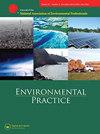佛教接受指责的实践如何促进科学和后真理观点之间的对话
Q3 Social Sciences
引用次数: 0
摘要
无视科学证据而支持观点和个人信仰是危险的,并且主导了后真相观点,这表明科学家需要新的方式来培养合作,以实现健康和可持续的未来。后真相危机,如否认气候变化和对疫苗的犹豫,反映了博学的、非科学的思维方式,因此指责支持者是无益的。改善对话的一个解决方案可能在于西藏传统的“把所有的指责归结为一”的思维训练,在这种训练中,指责被反直觉地接受,并通过深刻的沉思转化为同情。这种做法植根于佛教教义,即所有表现都是空的,没有分离和相互依赖,这反映了生态学和进化生物学中平行的科学原理,即生物体和环境共同产生,所有生命都来自一个共同的祖先。这种做法使人们认识到这样一个事实,即所有证据都是片面的,指责他人反映了分离的幻觉和对相互依存的无知,从而导致冲突和痛苦。我们讨论了实践“把所有的指责归结为一个”如何有助于改善科学和后真相观点之间的对话。本文章由计算机程序翻译,如有差异,请以英文原文为准。
How the Buddhist practice of accepting blame can improve dialogue between scientific and post-truth perspectives
ABSTRACT Disregard for scientific evidence in favor of opinion and personal belief is dangerous and dominates post-truth perspectives, indicating scientists need new ways of cultivating cooperation for a healthy and sustainable future. Post-truth crises such as climate change denial and vaccine hesitancy reflect learned, non-scientific ways of thinking and so blaming proponents is unhelpful. A solution for improved dialogue may lie in the traditional Tibetan mind-training practice of “drive all blames into one,” in which blame is counterintuitively accepted and transformed into compassion through deep contemplation. The practice is rooted in the Buddhist teachings that all manifestations are empty of separate-self and interdependent, which reflect parallel scientific principles in ecology and evolutionary biology—namely, that organism and environment co-arise, and all life derives from a common ancestor. The practice brings awareness to the fact that all evidence is partial and blaming others reflects illusion of separation and ignorance of interdependence, which causes conflict and suffering. We discuss how practicing “drive all blames into one” can help to improve dialogue between scientific and post-truth perspectives.
求助全文
通过发布文献求助,成功后即可免费获取论文全文。
去求助
来源期刊

Environmental Practice
ENVIRONMENTAL SCIENCES-
CiteScore
0.90
自引率
0.00%
发文量
0
期刊介绍:
Environmental Practice provides a multidisciplinary forum for authoritative discussion and analysis of issues of wide interest to the international community of environmental professionals, with the intent of developing innovative solutions to environmental problems for public policy implementation, professional practice, or both. Peer-reviewed original research papers, environmental reviews, and commentaries, along with news articles, book reviews, and points of view, link findings in science and technology with issues of public policy, health, environmental quality, law, political economy, management, and the appropriate standards for expertise. Published for the National Association of Environmental Professionals
 求助内容:
求助内容: 应助结果提醒方式:
应助结果提醒方式:


